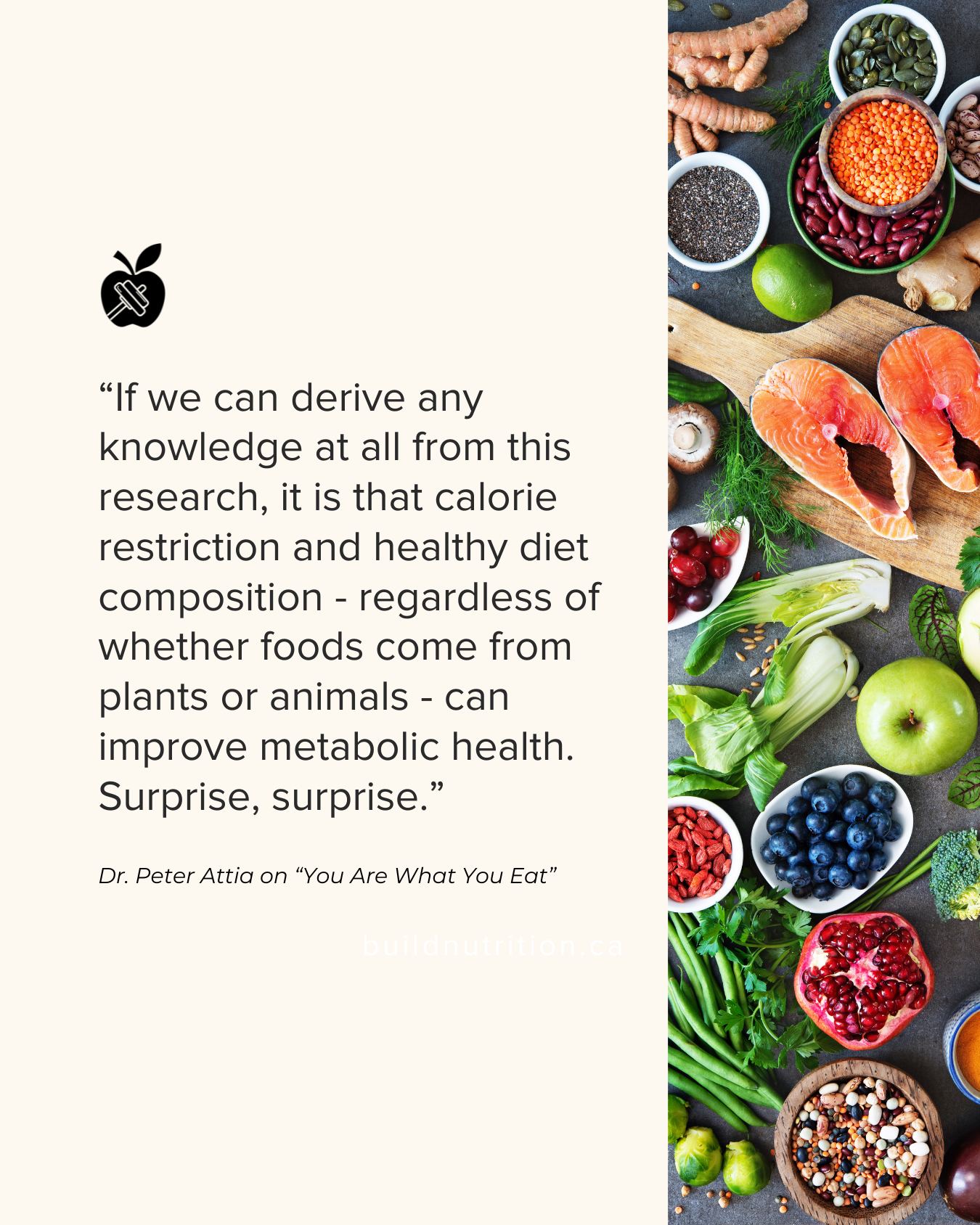I love data. I love evidence-based objective science when it comes to nutrition and wellness.
But I’m actually not at all good at weeding through it. So when I find an expert who does that part of it for a living AND is able to share that science with his audience in a down-to-earth relatable way that us peons can understand, I latch on!
Dr. Peter Attia and Dr. Andrew Huberman are among my favorites to tune into.
If you haven’t already, check them out!
So about the Netflix docuseries “You Are What You Eat”…
This might surprise you but I don’t usually watch nutrition documentaries. I’ve always found them to be very prejudice and contrived, lacking in the very things I mentioned above – evidence and objectiveness. But the twin thing intrigued me, so I did recently watch this one.
You might be wondering what my thoughts on it are…
Well… in addition to recognizing my limitations in research knowledge, I am also a conflict-averse connoisseur who’d rather hug it out than duke it out. So I typically avoid commenting publicly on hot topics that I know are sure to evoke disagreement.
But like I said above, I turn to those I trust on matters like this. And after reading Dr. Peter Attia’s response to this docuseries, I couldn’t help but share it. Below are my standout [very strong] comments from his article. When someone I trust for his science and evidence-based approach has this to say, it reminds me why science is so important and needs to be the backbone of the claims we make about nutrition.
“If we can derive any knowledge at all from this research, it is that calorie restriction and healthy diet composition – regardless of whether foods come from plants or animals – can improve metabolic health. Surprise, surprise.”
⬆ This one is my fav!
The take-away: eat the right QUANTITY of food and eat the right QUALITY of food for your body and goals.
Quality, quantity, and to a lesser degree timing of food intake are what makes a diet ‘healthy’, not whether it comes from plants or animals.
“While cutting “animal-based foods” might be arbitrary from a health standpoint, for many individuals and populations, considerations related to environmental impact, religious beliefs, or animal welfare may provide a more meaningful justification for the distinction.”
And lastly,
“Perhaps this chaotic, three-ring circus of a docuseries serves to highlight the nonsense of the study itself, and for those of us for whom health is our top dietary concern, this “research” should be taken for just what it is – entertainment, not rigorous science.“
Read Dr. Attia’s full article HERE.
